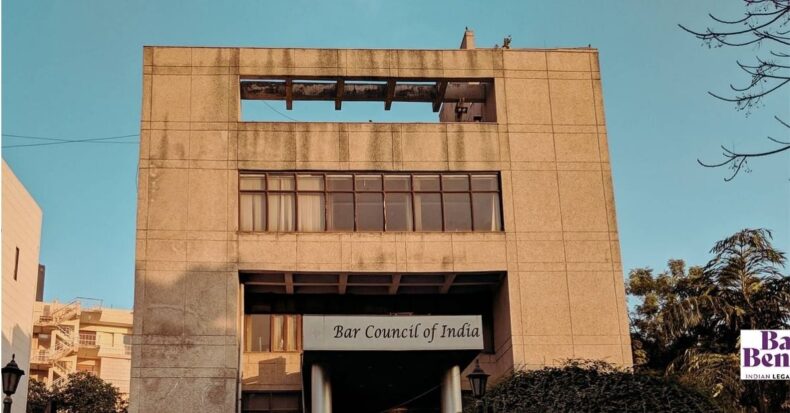
The court ruled that it is past due for interested parties to be asked to change the status of legal education, including BCI, Senior Advocates, academics, and even former Supreme Court and High Court justices.
The Bar Council of India (BCI) was ordered by the Delhi High Court on Friday to form a special team of specialists to make unannounced visits to institutions that lack the resources and facilities necessary to teach law.
Justice Chandra Dhari Singh mandated that inspection results of the colleges be posted on the BCI website within a month after the inspection and that the council take prompt action to shut any institutions that are found to be operating without the bare minimum of facilities.
The court stated that “this is a much-needed medication that should be provided to alleviate the ailments that legal education is suffering from.”
The court went on to say that it is past time for the BCI to take on the mission of improving the condition of legal education in India, together with all other stakeholders, including Senior Advocates, academics, and even retired Supreme Court and High Court judges.
Justice Singh was handling a number of petitions asking the Guru Gobind Singh Indraprastha University (GGSIU) to assign 110 seats for the BA LLB Five Years’ Integrated Course to the Ideal Institute of Management & Technology, one of its affiliated colleges, for the academic sessions 2018-19, 2019-20, 2020-21, 2021-22, and 2022-23.
The Institute testified before the court that it has received authorization from the BCI for 120 seats since the school year 2014–15, and even for the academic year 2022–23.
Even though there is enough room and infrastructure, the institution has resisted allocating 110 seats, it was said.
The Institute is not permitted to have 110 students since it holds lessons in the basement, according to the University.
According to BCI, the academic facility for the Centre of Legal Education must include separate classrooms with 60 students for each division, as well as spaces for tutorial work, a moot court chamber, common areas for male and female students, and a sufficient library or reading area.
The court noted after hearing from the attorneys for all parties that classes or any other educational activities cannot take place in a basement that is otherwise designated for parking and that the institute lacked the necessary Floor Area Ratio (FAR) for an increase in the number of students enrolled in the BA LLB program.
It further mentioned that the petitioner institute had only been given a No Objection Certificate (NOC) for the admission of 85 students to the BA LLB program by the Directorate of Higher Education (DHE).
As a result, the petitions were rejected by the court. However, in accordance with its prior rulings, it instructed the respondents to maintain the status quo for students who had previously been admitted in earlier academic sessions.
The Court ruled that for the academic year 2022–2023, “no such advantage shall be granted, and only admission to 85 Seats previously assigned by the Respondent University shall be done by the petitioner institute in its BA LLB Course.”
For the petitioner, attorneys Deepak Vohra, Shilpa Diwan, and Mayank Kumar appeared with senior lawyer HS Phoolka.
Ekta Sikri, Jasbir Bidhuri, and Sriwas, attorneys, appeared on behalf of the university.
Sanjana Nangia, an attorney, and ASC Sameer Vashisht represented Responded No. 2.













